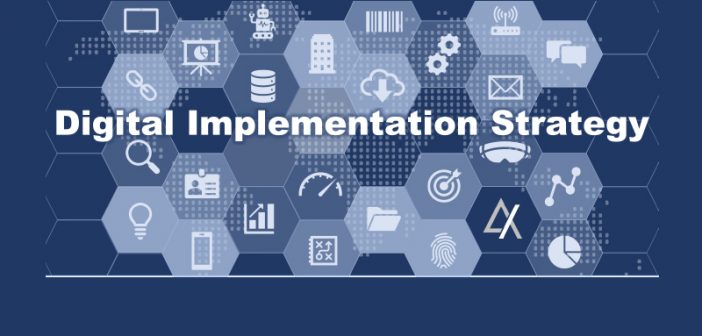The ‘Roadmap to the Digital Transition of Ireland’s Construction Industry 2018-2021’ is now in play, and the Irish Government’s BIM Mandate for public procurement has started this year for complex projects, and will continue to roll out for medium and simple projects over the next 2 years.
Many bigger private sector clients now require BIM on their projects. With this in mind, BIMIreland.ie spoke to Ralph Montague, Director at ArcDox, Ireland’s leading BIM Consultancy, about what organisations should be doing about their own “digital” implementation strategy.
“As consultants and advisors to many organisations over the past 10 years, we have witnessed a few key differentiators, between those companies, that have successful implementation strategies, and those that don’t,” says Ralph Montague.
Here are a few common traits amongst companies who have a successful digital strategy:
- They are willing to spend a little time upfront, to carefully consider, and document (communicate), their implementation strategy, before they launch into any significant investment or action, and consequently they tend to save a lot of time and unnecessary (or wasteful) investment later, and have a less stressful, more structured or ordered approach.
- They are focused on “business productivity improvement”, and “return on investment” from their strategy, and strive to see “digital” as the new “business as usual” across the organisation, as a way to provide better, quicker and higher value services, and they tend to be more determined on success, than those who are simply reacting to market demands if and when required.
- They have “leaders” in the organisation, who share and support the “vision” of improved business practices, through “digital”, and are willing to engage with employees, to bring them along the journey, through support and investment into upskilling and resources (hardware, software, etc), and they tend to achieve more successful outcomes.
- They are willing to “Think BIG”, even if they know the initial steps along the journey are going to be small, and constrained, but are willing to consider, and set worthy targets to aim for, in the short, medium and long term, making sure each small step (investment in time, money) is contributing to the “Bigger Picture”.

Things to Consider in Your BIM Implementation Strategy
A good and comprehensive “digital” strategy will consider, and document, a SMART (specific, measurable, achievable, relevant, time-based) Action Plan for the following items:
- BIM Strategy/Transition Team
- Review of current Internal & External “Information Flows”
- Potential Improvements from “Digital” and new workflows
- Review of BIM Knowledge & Skill Requirements
- Review Level 2 Compliance Checklist
- Template Documents
- Internal BIM Standards, Procedures and Protocols
- BIM Templates
- BIM Object Libraries
- Coding/Classification/WBS
- Model Checking Procedures
- Hardware Infrastructure
- Server
- Network (LAN/WAN)
- Workstations
- Laptops
- Tablets
- Collaboration Server/Tools
- Virtual Workstations
- Laser Scanning
- Robotic Total Station
- Software
- Licencing Options
- Interoperability
- Training Programme (by role, by individual)
- Certification (individual and business)
- Production Requirements
- Support Requirements
- Supply Chain Contribution
- KPI’s (key performance indicators) & ROI (return on investment)
- Demonstration Material Required
- BIM Integration with
- Health & Safety
- Environmental (Lifecycle, Carbon Cost)
- Quality Control
- Building Control
- Operations & Maintenance
- Asset Information
- Lean Practice
ArcDox have provided consultation services in relation to developing BIM Implementation Strategies, to a number of leading companies over the past years, and are one of the approved providers under the Enterprise Ireland “BIM Enable” & “BIM Implement” programmes.
ArcDox also provide a fixed-price “BIM Implementation Strategy Consultation Package” for organisations – see details here: https://www.arcdox.com/bim-implementation-strategy-package
As well as a comprehensive “In-Company BIM Training” programme – see details here: https://www.arcdox.com/in-company-bimtraining
Follow BIMIreland.ie on LinkedIn and on Twitter @BIMIreland #BIMIreland #BIMPeople




